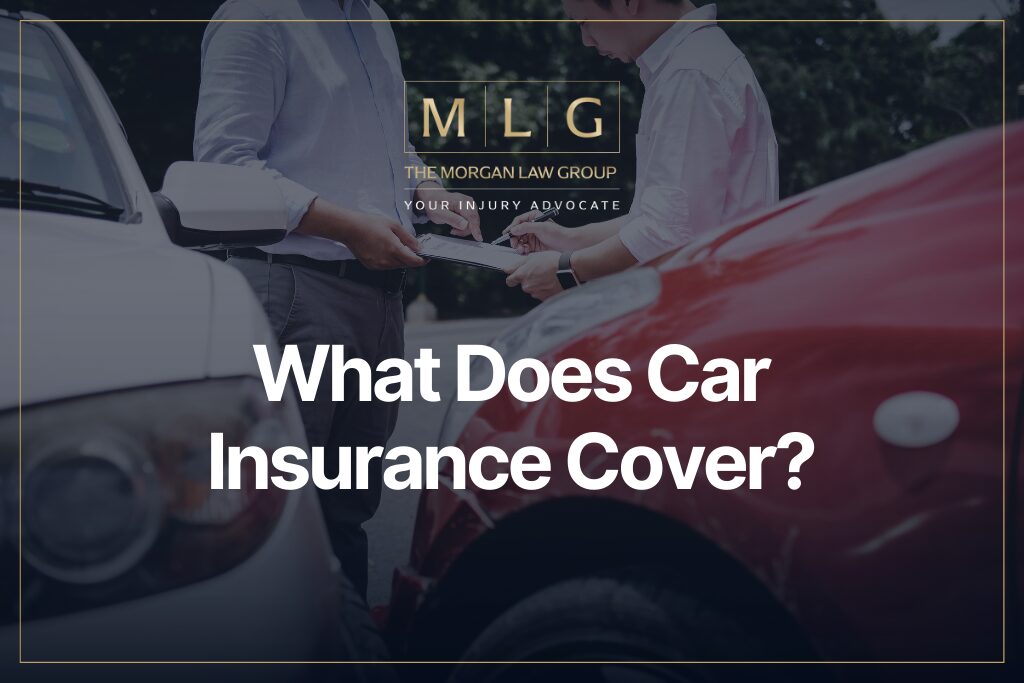When faced with the aftermath of a car accident, understanding your car insurance coverage is paramount. Not only does it provide financial protection, but it also forms the basis of any subsequent claims for damages or injuries.
Navigating the complex world of insurance claims while dealing with injuries and damages can be overwhelming. That’s where skilled car accident attorneys make all the difference. Explore the crucial components of car insurance.
Importance of Car Insurance Coverage
Car insurance is essential not only because it is mandated by law in most states but also because it offers financial security, helping to cover significant expenses that can arise from road incidents. For those involved in car accidents, the right insurance policy can be the difference between a resolved claim and substantial out-of-pocket costs.
Types of Car Insurance Coverage
Each type of car insurance coverage is designed to provide a specific layer of financial safety, helping you manage various scenarios that might arise while on the road.
Comprehensive Coverage
This form of insurance is crucial for covering events that aren’t caused by a collision. Comprehensive coverage pays for repairs or the replacement of your vehicle if it’s damaged due to theft, vandalism, or environmental causes like hail, floods, or fire. This type of coverage is particularly beneficial if you live in areas prone to severe weather or high theft rates, ensuring that you’re not out-of-pocket for unforeseen damages to your vehicle.
Collision Coverage
Collision coverage comes into play when your vehicle is involved in a collision, whether with another vehicle or a stationary object like a guardrail or tree. This coverage is indispensable for getting your vehicle repaired or replaced, allowing you to return to your daily activities with minimal disruption. Whether you’re at fault or not, collision coverage ensures that your vehicle’s damages are not a financial burden on you.
Liability Coverage
Liability coverage is a must-have for every driver. This insurance protects you financially if you are at fault in an accident that causes injury to other people or damage to their property.
- Bodily injury liability coverage is essential as it covers the costs associated with injuries to other people involved in an accident for which you are deemed responsible. This can include expenses such as medical bills, loss of income if the injured party is unable to work, and even legal fees if you are sued.
- Property damage liability provides coverage for damages to someone else’s property resulting from an accident for which you are at fault. It will cover repair or replacement costs up to the limit specified in your policy, helping you avoid out-of-pocket expenses.
While every state has its minimum insurance requirements, these are often quite low and may not cover all expenses if you are at fault in a serious accident.
Personal Injury Protection (PIP)
PIP is crucial, especially in no-fault states, as it covers the medical expenses of you and your passengers, regardless of who caused the accident. This can include hospital bills, rehabilitation costs, and even lost wages, providing comprehensive financial assistance during the recovery process. PIP enables you and your passengers to receive immediate medical attention without waiting for insurance companies to determine fault.
Uninsured/Underinsured Motorist Coverage
This coverage is your financial safeguard against drivers who, unfortunately, do not carry adequate insurance. In incidents where the at-fault driver is uninsured or underinsured, this coverage steps in to cover the costs of your injuries or damages. This is particularly important as it ensures that you are not left covering high costs from an accident that wasn’t your fault.
Navigating the complexities of car insurance coverage is essential for every driver. Understanding the nuances of each type of coverage can significantly enhance your readiness to handle any situation on the road.
Tips When Selecting Car Insurance Coverage
Choosing the right car insurance coverage is essential for protecting yourself, your finances, and your vehicle. Whether you are purchasing insurance for the first time or considering a change in your current policy, these tips will help you make informed decisions and select the best possible coverage for your needs.
- Understand Your State’s Insurance Requirements: Each state has its own minimum requirements for car insurance coverage, including specific mandates for liability insurance. Start by understanding these legal minimums, but remember, these are just the starting point; it’s wise to opt for more comprehensive coverage.
- Assess Your Personal Needs and Risk Factors: Consider your specific circumstances – vehicle type, driving habits, and financial situation.
- Compare Coverage Options: Not all car insurance is created equal. It’s crucial to compare what different insurers offer in terms of coverage options and costs.
- Review and Adjust Your Coverage Regularly: Your insurance needs may change over time as your life circumstances evolve. Regularly reviewing your policy ensures your coverage remains aligned with your current needs. This can include adjusting your coverage as your car ages or if your financial situation changes.
By considering these factors and regularly revising your policy, you can ensure comprehensive protection that meets your needs and budget.
Legal Assistance in Car Insurance Claims
Understanding the nuances of your car insurance coverage can be challenging, particularly when recovering from the trauma of a car accident. At The Morgan Law Group, our personal injury attorneys can interpret the specifics of your insurance policy, negotiate with insurance companies, and ensure that you receive the maximum compensation available under your coverage and the liable party if needed.
If you find yourself in need of guidance after an accident, consider reaching out with our car accident attorney who can help protect your interests and maximize your entitled compensation. Call us today for a free consultation or contact us through our online form.

